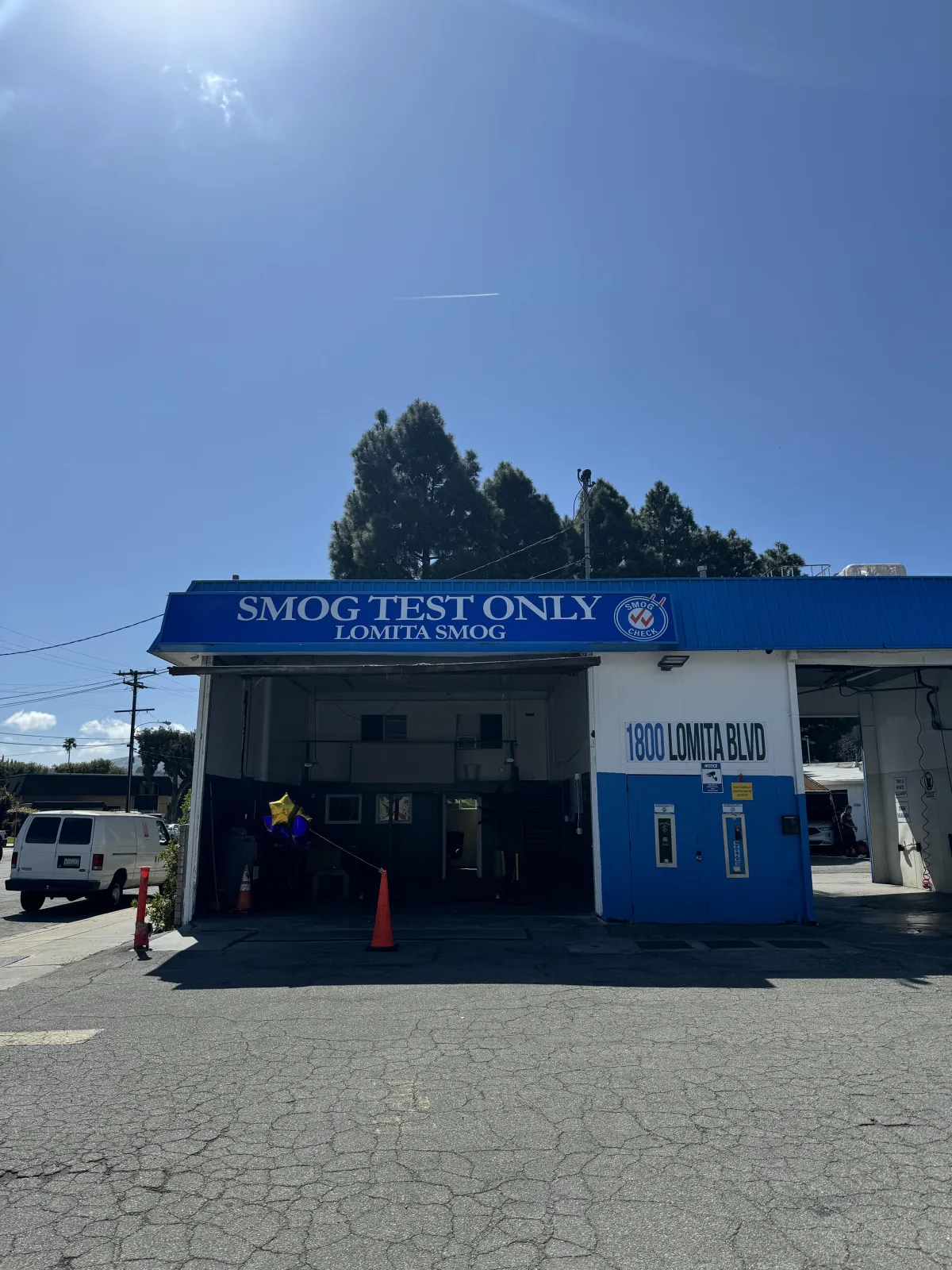
Email Us
Call Us
Business Hours:
Mon-Fri 9:00 AM - 5:00 PM | Sat AM 9:00 - 3:00 PM | Sun 10:00 AM - 2:00 PM
Smog Check Service and Clean Truck Check in
Lomita, CA | Fast and Reliable
Every smog check comes with $10 towards our onsite car wash!
Walks-Ins are Welcomed!

Email Us [email protected]
Call Us +1 909-359-7382
Business Hours: Mon-Fri 9:00 - 5:00 Sat 9:00 - 3:00

Guaranteed Service
Smog check guaranteed, with experience and commitment to deliver top quality and satisfaction.

Star Station Certified
We meet the highest standards in emissions inspection and maintenance, protecting the environment and air quality.

Spacious Waiting Room
We have a spacious waiting room for your comfort while the Smog Check service is being performed.
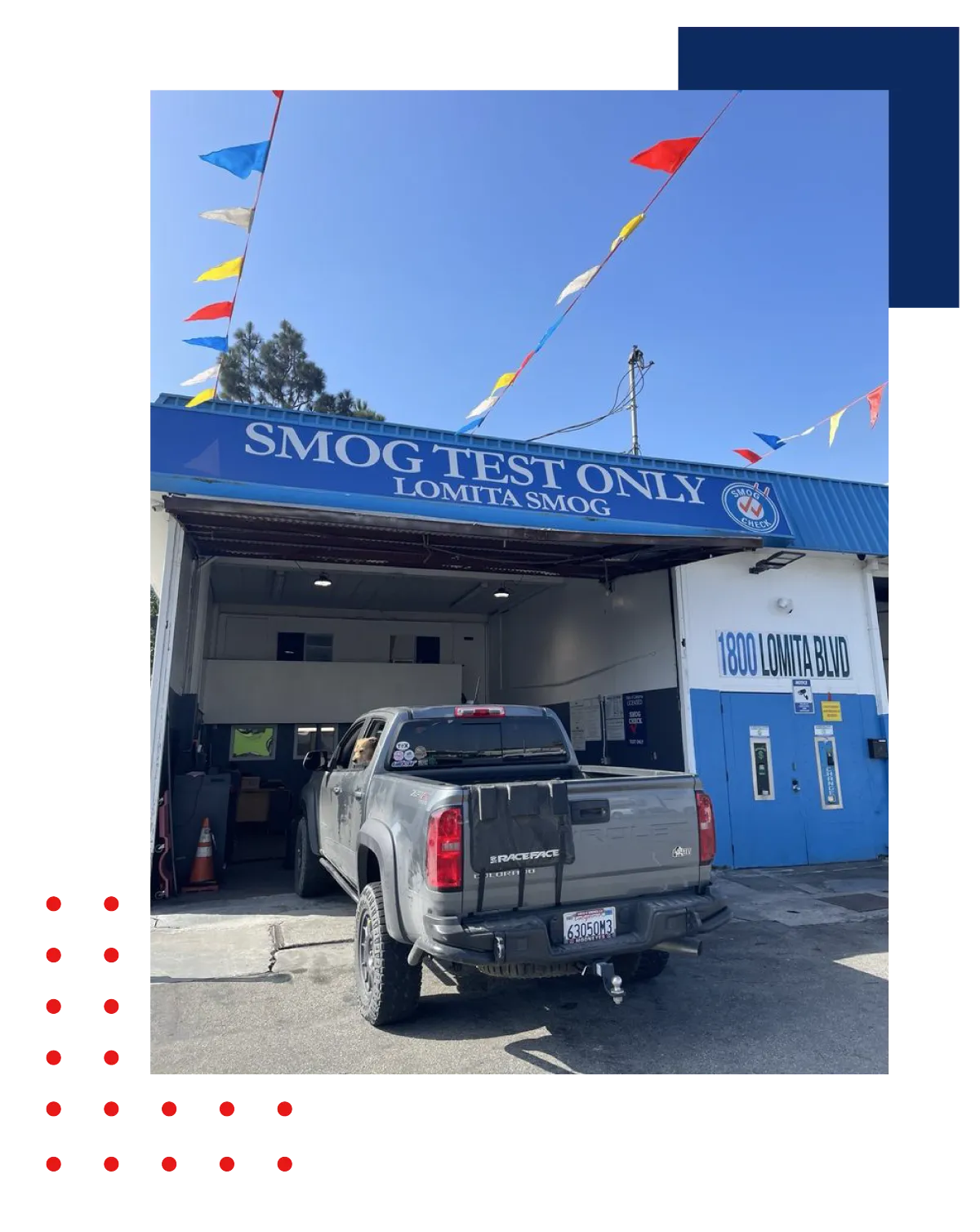
Welcome To Lomita Smog Check
Our Smog Check Shops Stay Up To Date
Welcome to Lomita Smog – Your South Bay Experts for Smog Checks and Vehicle Emissions! We’re committed to keeping your car and our community’s air clean with fast, reliable service right here in Lomita. Drive in for a hassle-free smog inspection today and breathe easy with Lomita Smog!
Car, Van, Truck and RV Smog Inspections
Diesel Certification
Hybrid Identification
Out of State Smog Check
Bi-Annual Smog Check Inspections
Change of Ownership
Certified Smog Services in Lomita for California Vehicles
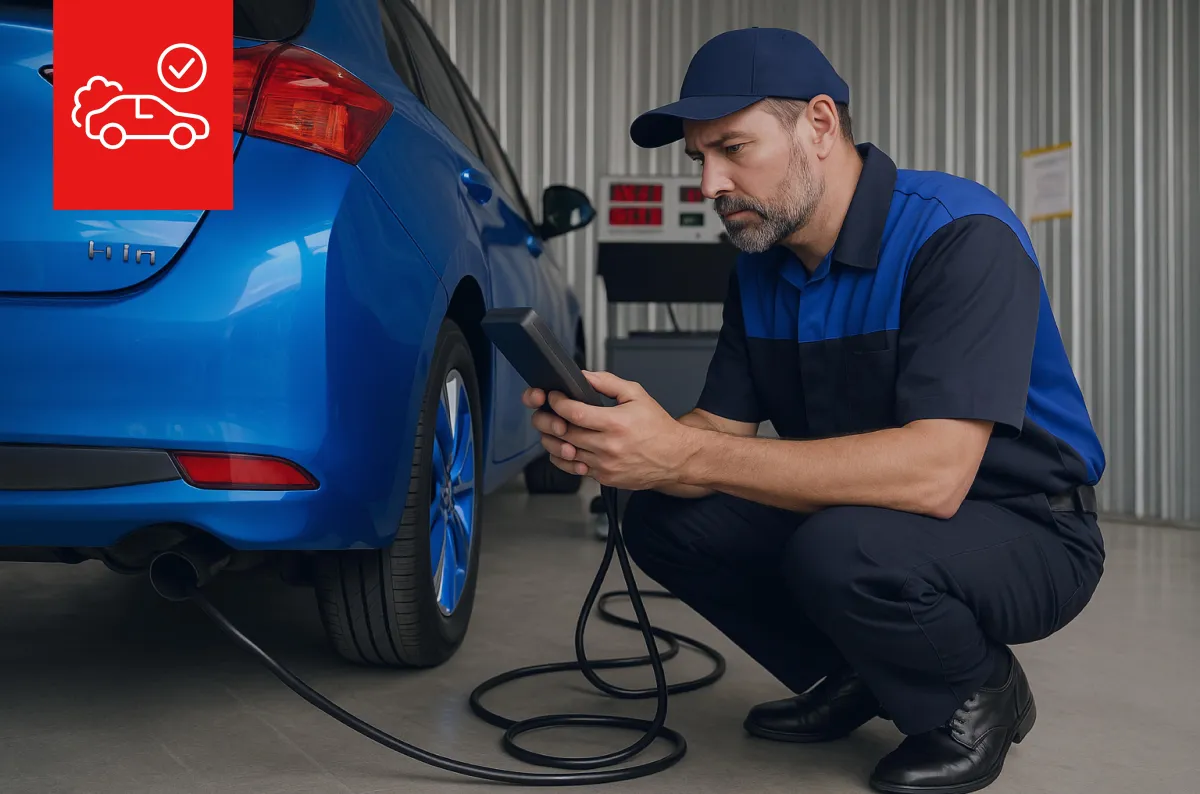
Smog Check Cars
This inspection is required for most gasoline-powered cars and light trucks, with exemptions for certain older models, alternative-fuel vehicles, and motorcycles. In some areas, certification is required every other renewal, while newer vehicles pay a smog fee instead of undergoing the test in their first six years.
Helps improve air quality and public health.
Ensures vehicles are running efficiently and cleanly.
Meets legal requirements to avoid fines or registration issues.
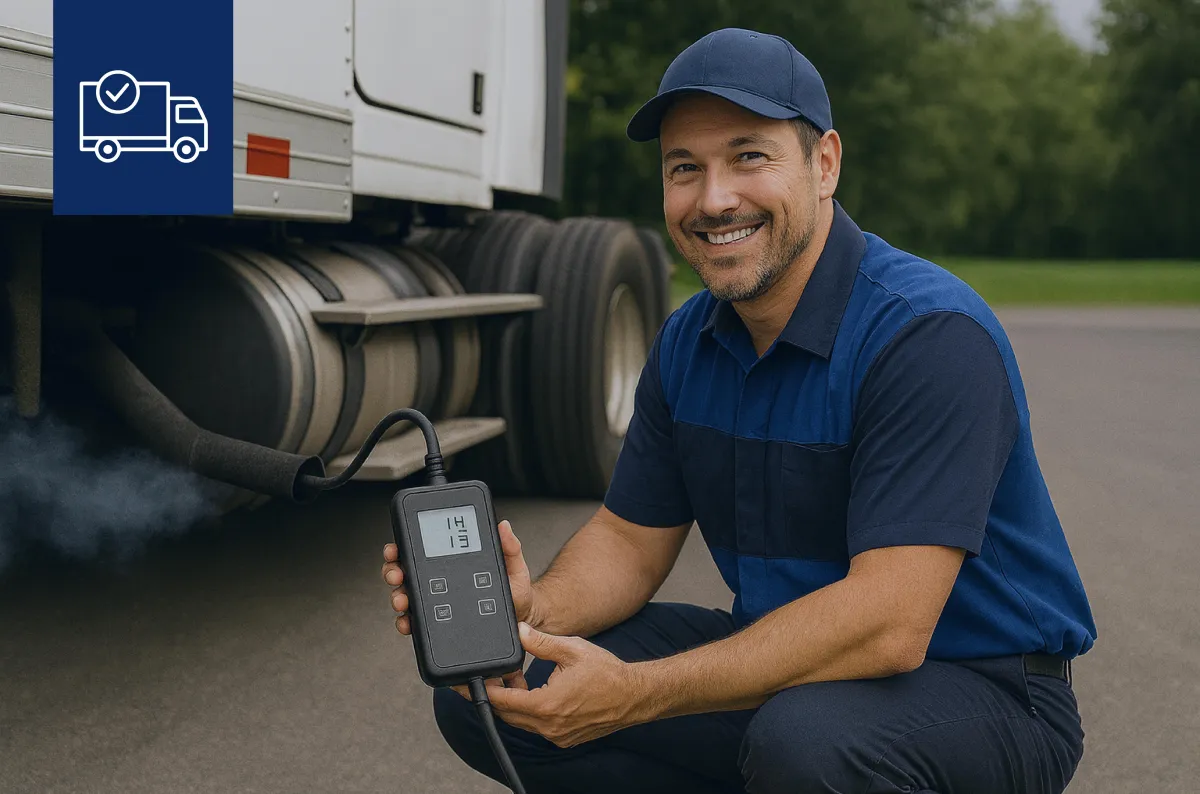
Clean Truck Check (HD I/M)
The clean truck check is a process of inspecting and maintaining trucks to ensure they meet emissions and environmental safety standards. This process may include checking exhaust systems, reviewing emission levels, inspecting brake and light systems, among other aspects related to the safety and environmental impact of trucks.
Reduces harmful emissions from heavy-duty vehicles.
Improves vehicle reliability and operational safety.
Supports compliance with environmental and transportation laws.
Why Lomita Smog is the Ideal Choice
Competitive pricing
Expert Technicians
Customer Focused Service
Fast and Efficient
Convenient Location
Lounge with WI-FI, Coffee and refreshments

Drive Clean & Save $5 Today!
Fast, Affordable, and Eco-Friendly Smog Checks
Keep your vehicle running efficiently while saving money! Present this coupon on your phone or mention it to get $5 OFF your smog check for 1995 and newer cars, trucks, and SUVs. (Excludes diesels and RVs.)
Save money instantly with $5 OFF.
Keep your vehicle in compliance with state emissions laws.
Quick and hassle-free service—no printing required.
Contribute to cleaner air and a healthier environment.
Where to locate Lomita Smog Check?
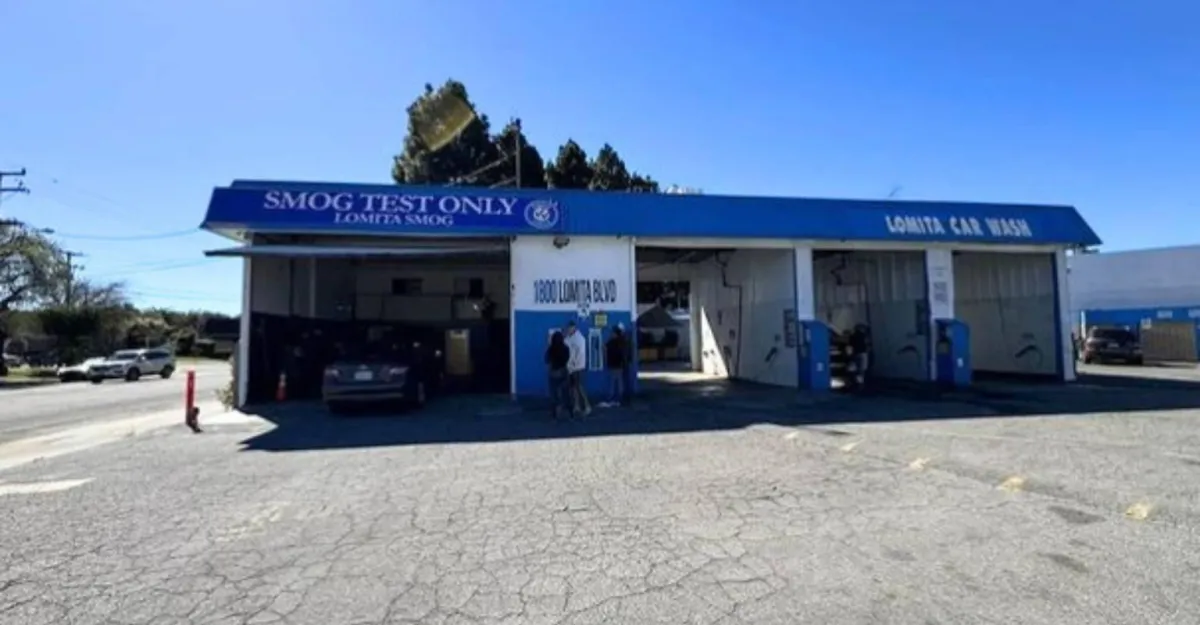
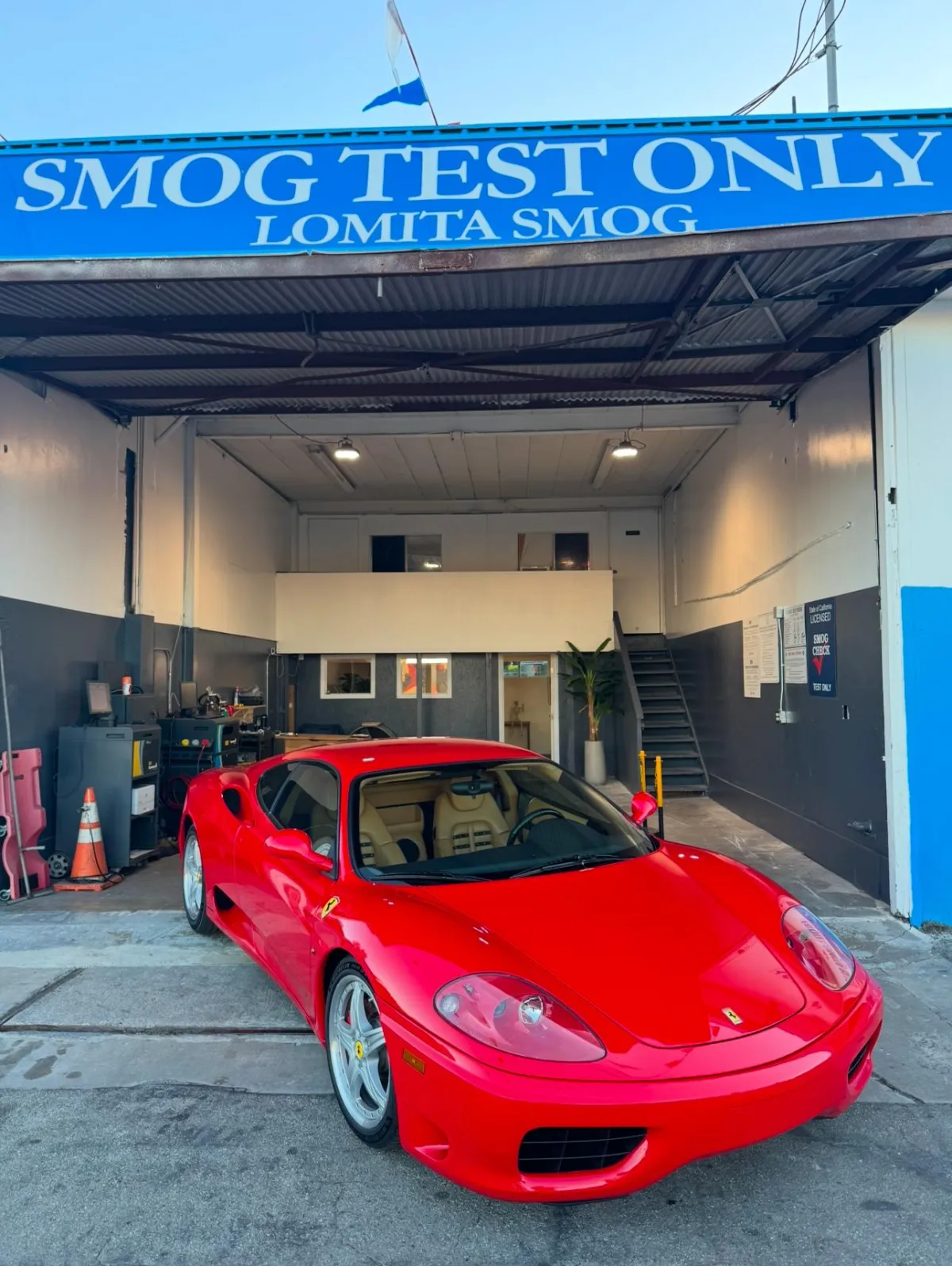

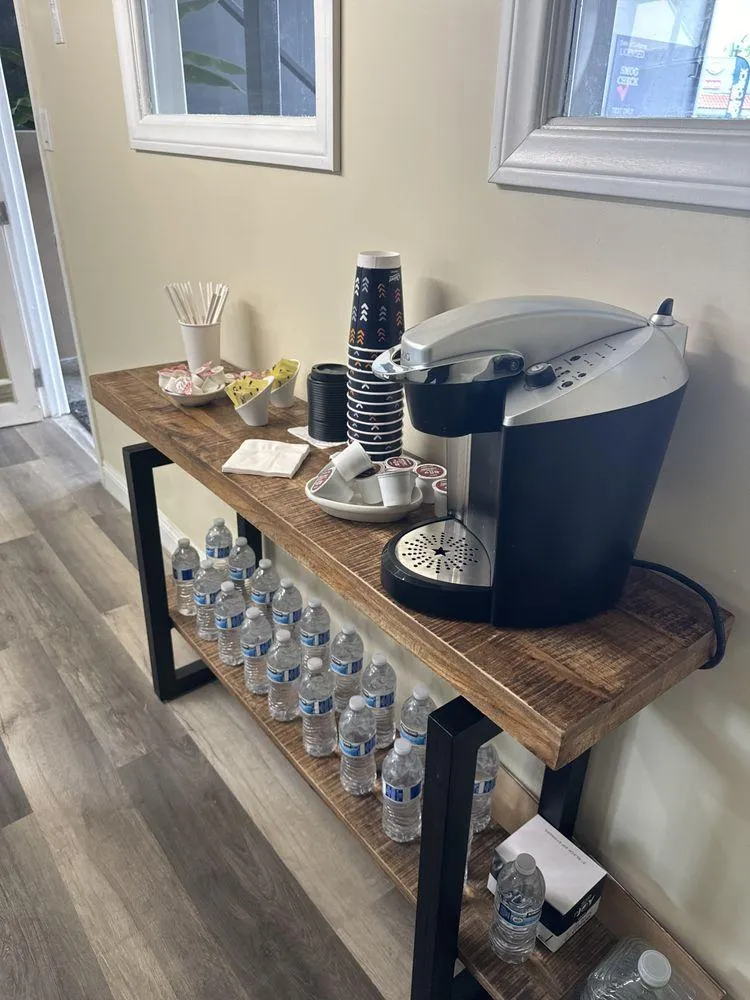
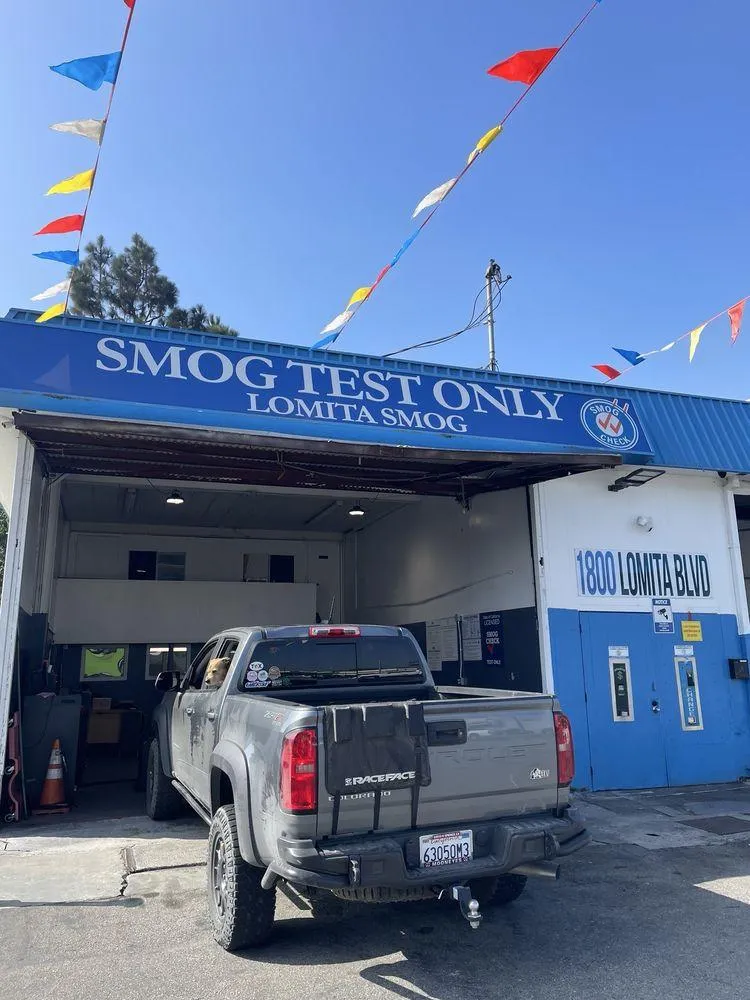

LOMITA SMOG CHECK FAQ's
Frequently Asked Questions
1. What is the cost of the smog check for my Honda?
Refer to our pricing above based on your vehicle's model year.
2. How can I contact Lomita Smog Check for vehicle questions?
Call us at (310) 800-8620 for any inquiries.
3. What are your hours of operation?
Mon-Fri 9:00 AM - 5:00 PM | Sat AM 9:00 - 3:00 PM | Sun 10:00 AM - 2:00 PM
4. Is the smog test done while I wait?
Yes, you can stay with your vehicle, or you may drop it off and wait in our designated area.
5. Do you offer smog checks for electric vehicles?
No, we currently provide smog checks for hybrid vehicles only.
6. What if I lose my smog check certificate?
Smog certificates are valid for 90 days. Visit us for a copy if needed.
7. Does car insurance cover the cost of the smog check?
No, insurance does not cover this cost.
8. What documents should I bring for the smog check?
A renewal or registration is preferred, but if you don’t have it, we can retrieve the information from your vehicle.
9. How long after repairs can I do another smog check?
You can have your vehicle smogged as soon as it is ready.
10. Do you provide discounts for students or military personnel?
No, we do not offer any discounts.
11. Can I wait at Lomita Smog Check during the smog check?
Yes, you are welcome to wait in our waiting area.
Contact Lomita Smog Check Today!
For more information or to schedule your smog check, call us at (310) 800-8620 or visit us during our business hours.
Let Lomita Smog Check help you keep your vehicle compliant with California’s emission standards!

